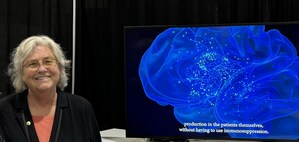In addition to gaining investigational new drug (IND) clearance from FDA and starting its first-in-human clinical trial, the company has developed a robust multi-organizational strategy for further industrialization of autologous cell therapy manufacturing; and to automate, close processes and increase throughput.
The new facility is certified by the Food and Drug Branch (FDB) of the California Department of Public Health. The Aspen team is currently producing its patient-specific clinical drug product using in-house manufacturing and Quality Control (QC).
The project comprises a 14,000 sq ft facility with 3,000 sq ft of controlled manufacturing space, including three ISO qualified manufacturing suites, QC labs, warehouse, and offices; as well as an additional 8,000 sq ft expansion space available for future manufacturing suites, additional process automation and QC labs. This adds to the existing and certified 500 sq ft of controlled manufacturing space used for processing of patient skin biopsies, and laboratory space for research and process development at company headquarters.
"We are proud to have expanded in San Diego, given that ANPD001 was originally developed here. This new site will help accelerate the manufacture of patient-specific cell lines for our ASPIRO trial patients in California and across the U.S.," said Damien McDevitt, PhD, president and CEO of Aspen Neuroscience. "We continue to advance the entire cell therapy field with this new treatment modality."
Aspen's autologous manufacturing platform starts with a small sample of the patient's own skin cells, which are then reprogrammed to iPSCs unique to each patient, before differentiation into their final cell type for therapeutic delivery. For ANPD001, the patient's iPSCs are converted into personalized dopaminergic neuronal precursor cells (DANPCs) for the treatment of PD.
Before implantation, the cells are evaluated at several stages of the manufacturing process by Aspen's proprietary genomic tests and Machine Learning-based bioinformatics tools to evaluate cell quality.
"Aspen is leading the field when it comes to pluripotent stem cell-derived cell therapies," said Kim Raineri, Chief Technology Officer. "Our goal is 'scaling out, not up.' We are innovating to produce small quantities of cells specific to the patient, for many patients in parallel."
The autologous cell therapy approach was pioneered by Aspen's co-founders, Jeanne Loring, PhD, Professor Emeritus and Director of The Center for Regenerative Medicine, Department of Molecular Medicine at the Scripps Research Institute, and Andres Bratt-Leal, PhD, Aspen Senior Vice President, Research and Development. With help and support from the Parkinson's patient community and the Summit for Stem Cell Foundation, the Loring lab team formed Aspen Neuroscience in 2018. The company received an early California Institute for Regenerative Medicine (CIRM) grant, to support the company's research on using machine learning to identify cell lots that have successfully differentiated from iPSCs into DANPCs. Earlier this year the company was awarded a CLIN2 grant from CIRM to help advance the clinical development of ANPD001.
About Aspen Neuroscience
Headquartered in San Diego, Aspen Neuroscience, Inc. is a clinical development-stage, private company focused on autologous regenerative medicine. The company is developing personalized cell therapies to address diseases with high unmet medical needs, beginning with autologous neuron replacement for Parkinson's disease. For more information and important updates, please visit https://www.aspenneuroscience.com.
SOURCE Aspen Neuroscience, Inc.







Share this article